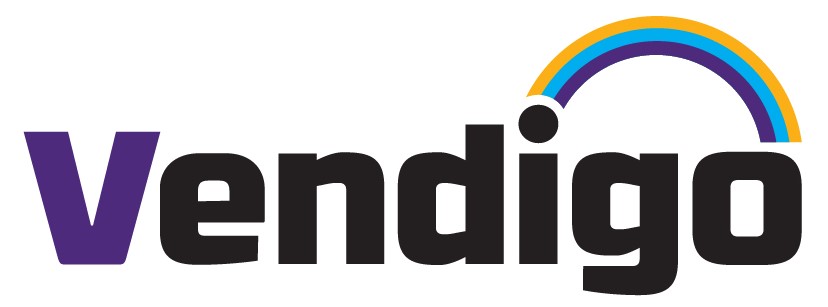Dispensing Hope, Nourishing Communities
We believe in the Art of Giving, and our mission is to provide access to essential goods and services for people in need through innovative & free vending machine solutions, creating an equitable community for all. This includes access to healthy food, hygiene products, and other necessities critical for well-being
- One Year Strong: "Vendigo" celebrates first Anniversary!!!
Vendigo in KCAL News
Sharing Food, Caring for Communities
Our mission is to provide access to healthy food for people in need through innovative vending machine solutions, creating a equitable community for all.
- What is Project Vendigo?
- A not for profit vending machines for access to food.






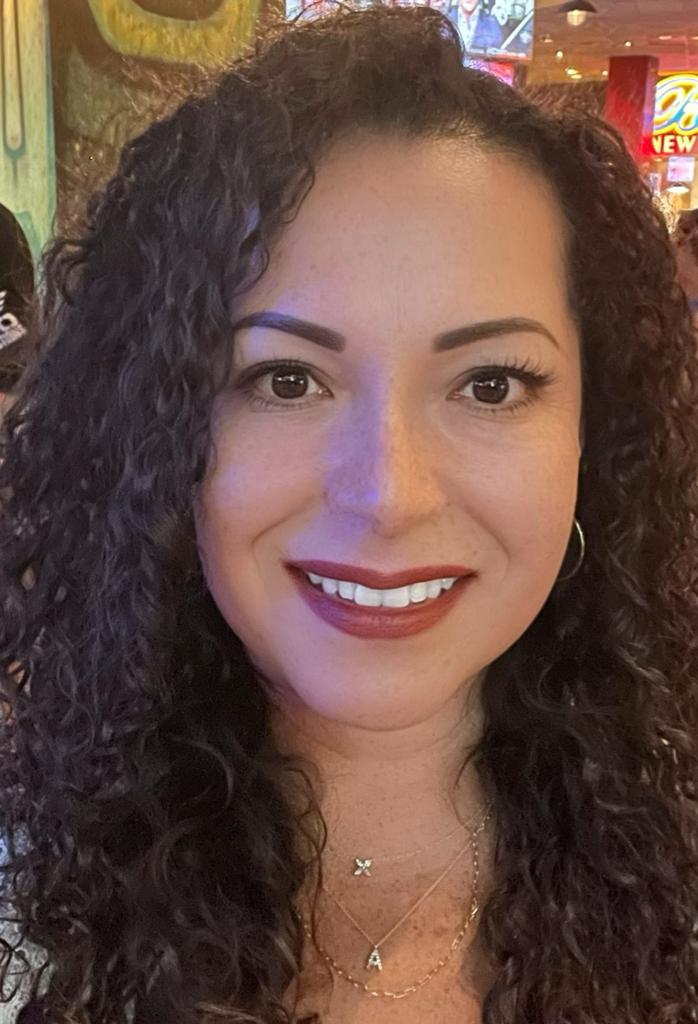


About Me
"I believe in the 'Art of Giving'. Imagine a world where no one lacks essentials, where access to necessities is a basic human right, not a privilege. That's my dream! There exists a surplus of food and essential resources that go to waste, alongside a widespread willingness among individuals to donate. Harnessing technology and dedication can effectively optimize workflows, bridge existing gaps, and ensure that disadvantaged individuals receive the vital support they require.
Hi, I'm Sarayu Kocharlakota, a high schooler from LA, and I'm on a mission to make it happen. I came up with an idea to install free vending machines that dispense essential goods and services 24x7 for those in need. And I'm humbled to say that I teamed up with WISH, a non-profit that provides temporary housing for the homeless, to make it a reality. Together, we identified strategic locations to install free vending machines, ensuring that everyone has access to essentials without deprivation. But we need your help to sustain this project. We're matching each non-profit vending machine with a for-profit one, and anyone can contribute by donating, volunteering, or even suggesting a location. Join us in creating a world where access to essentials is a right, not a privilege."
Partnerships
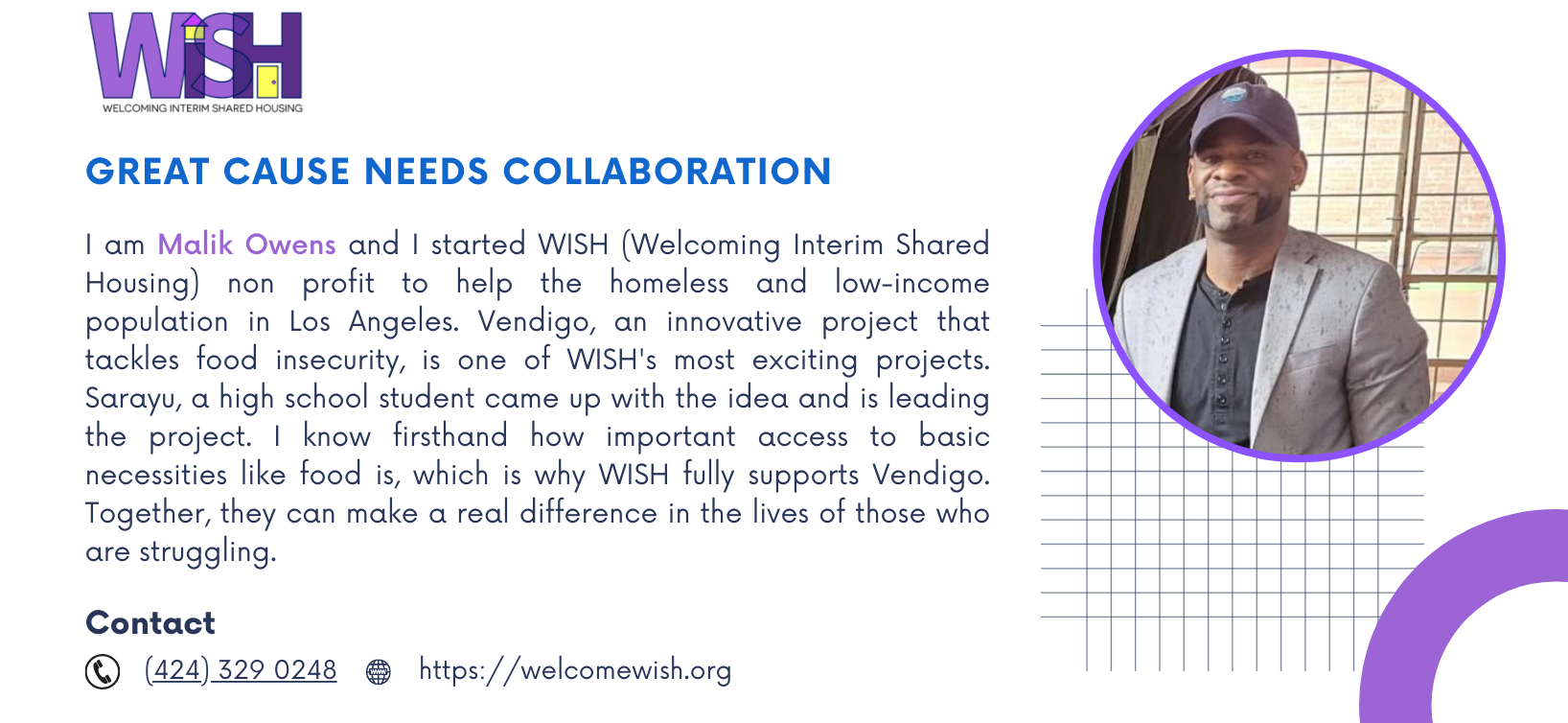
Locations
Audubon Middle School





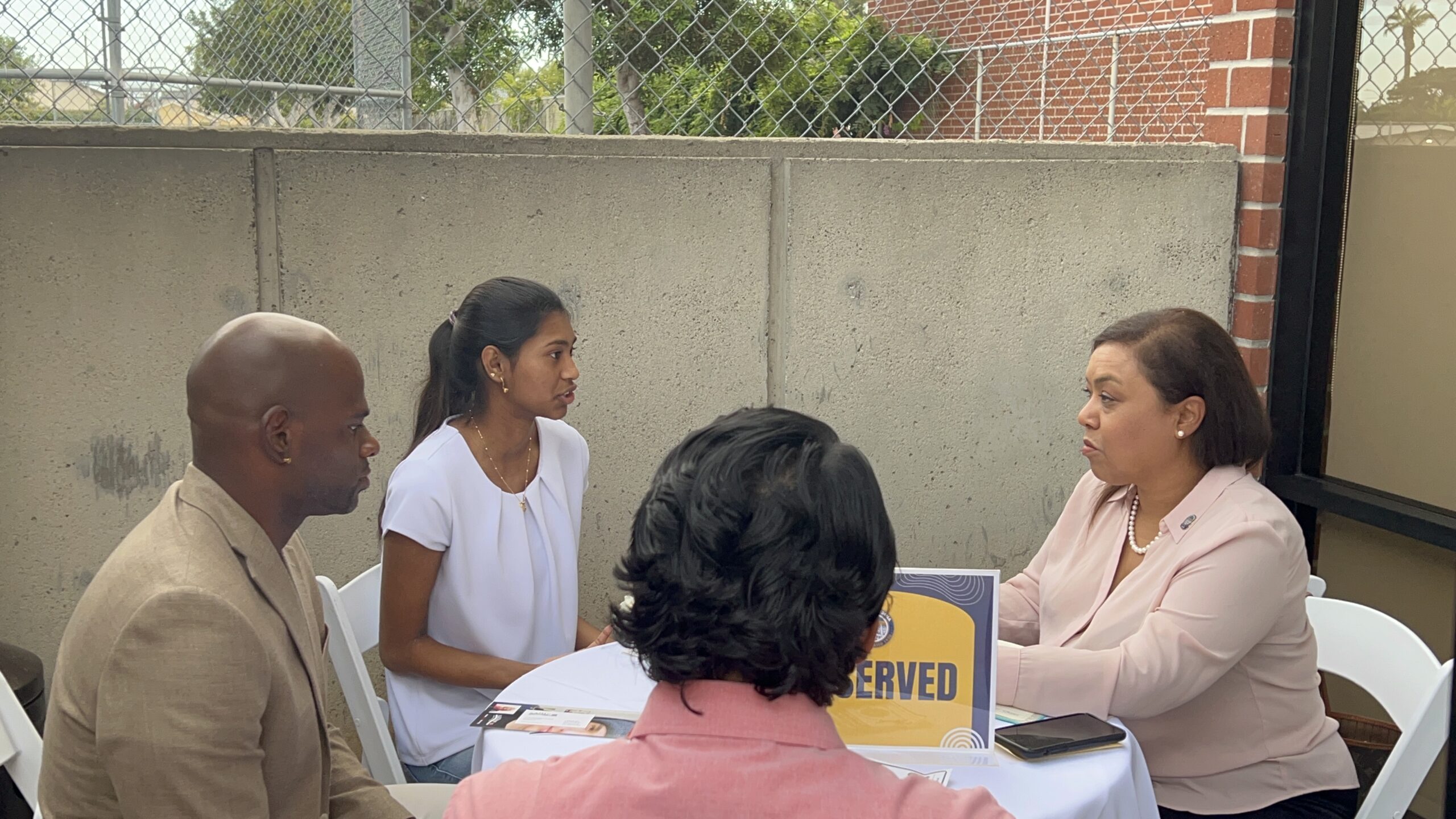

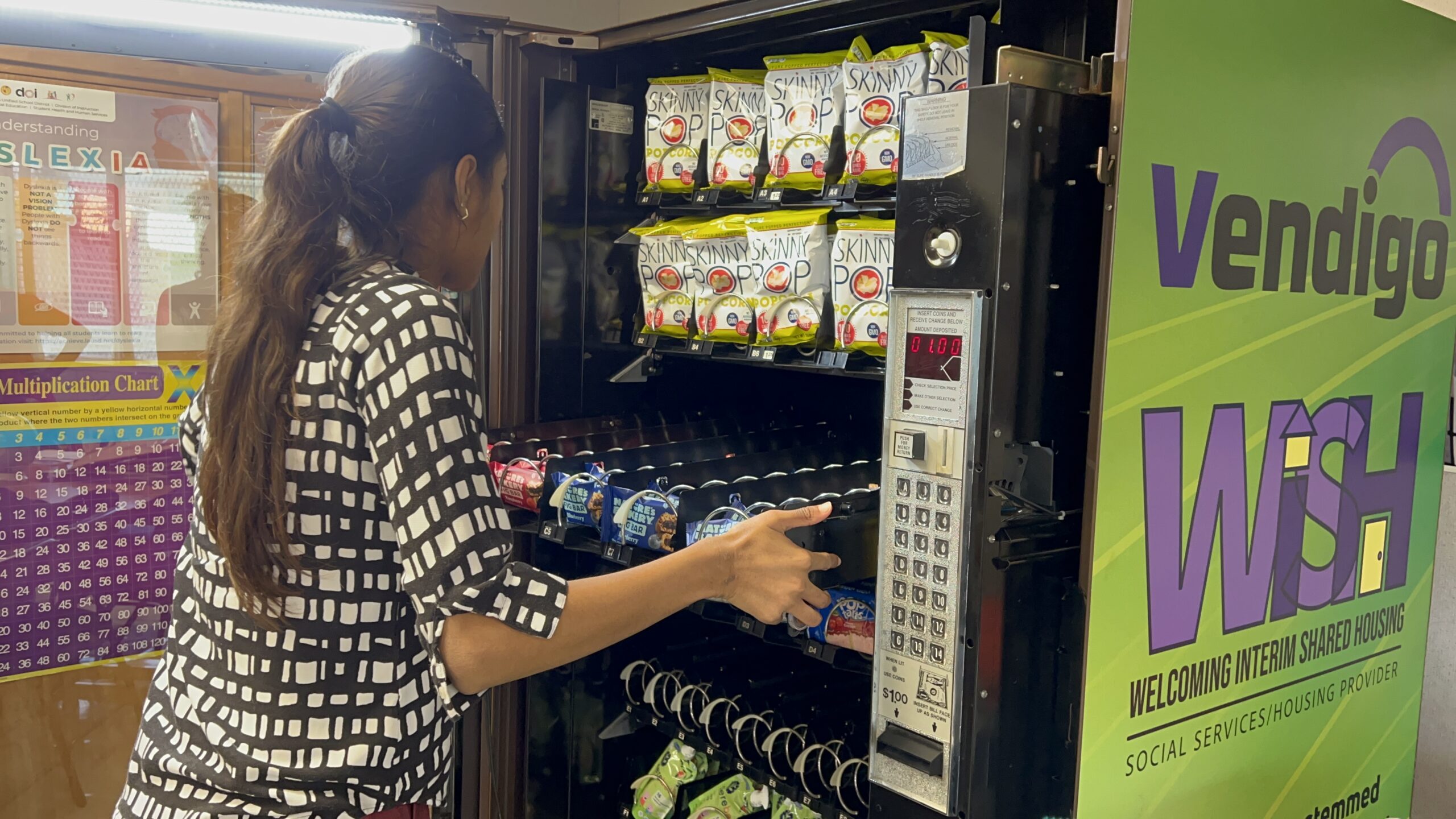
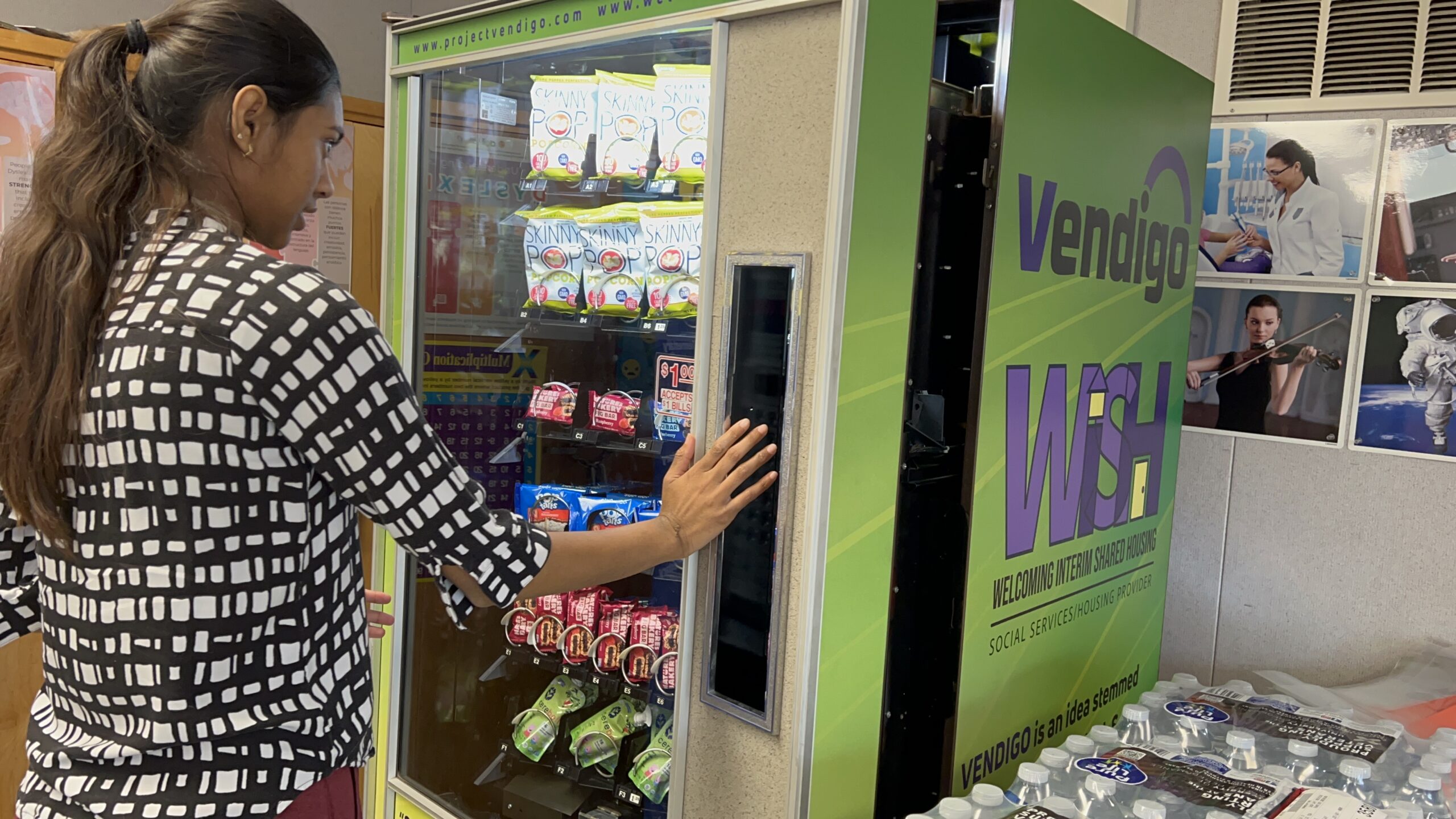
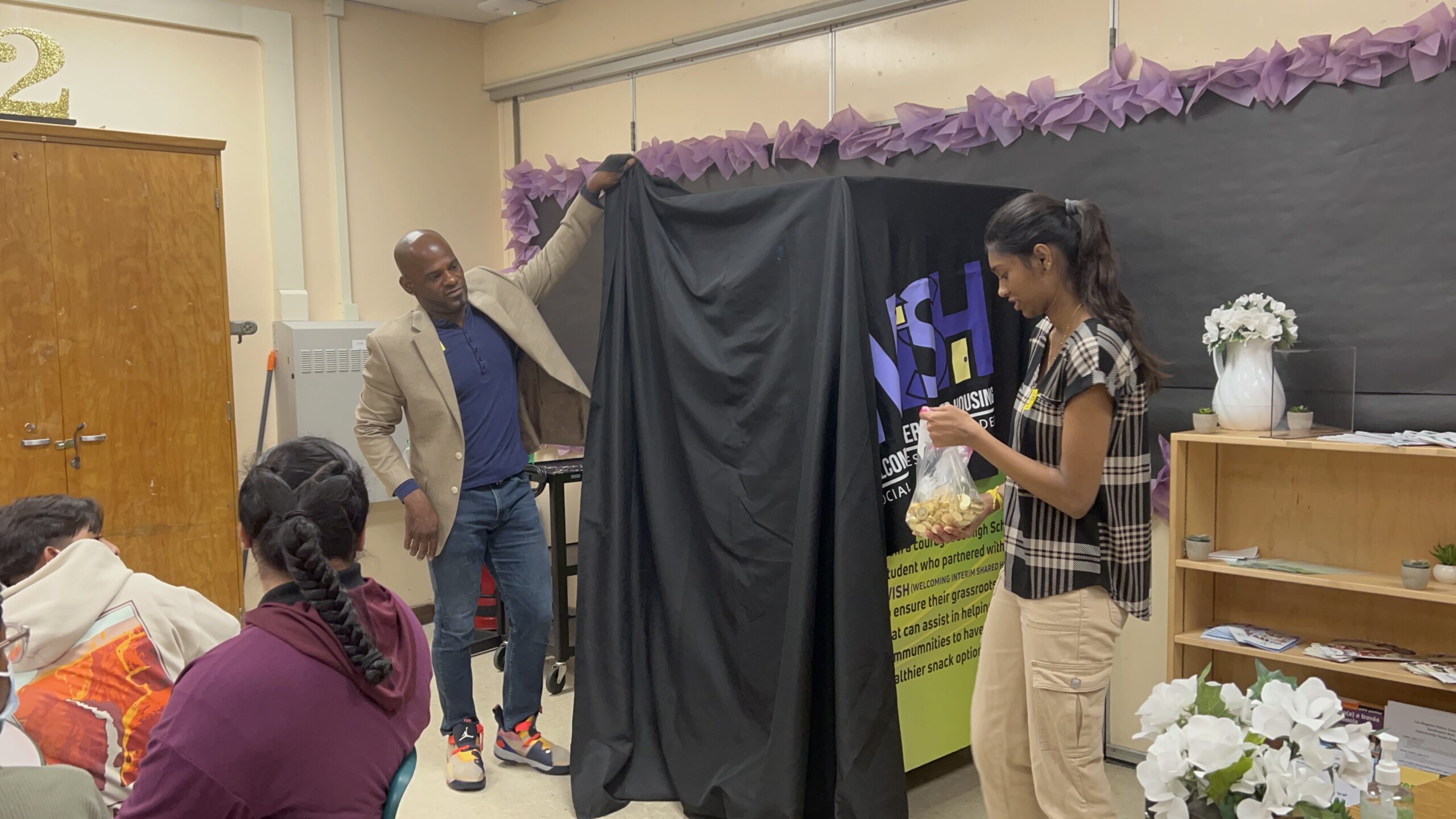
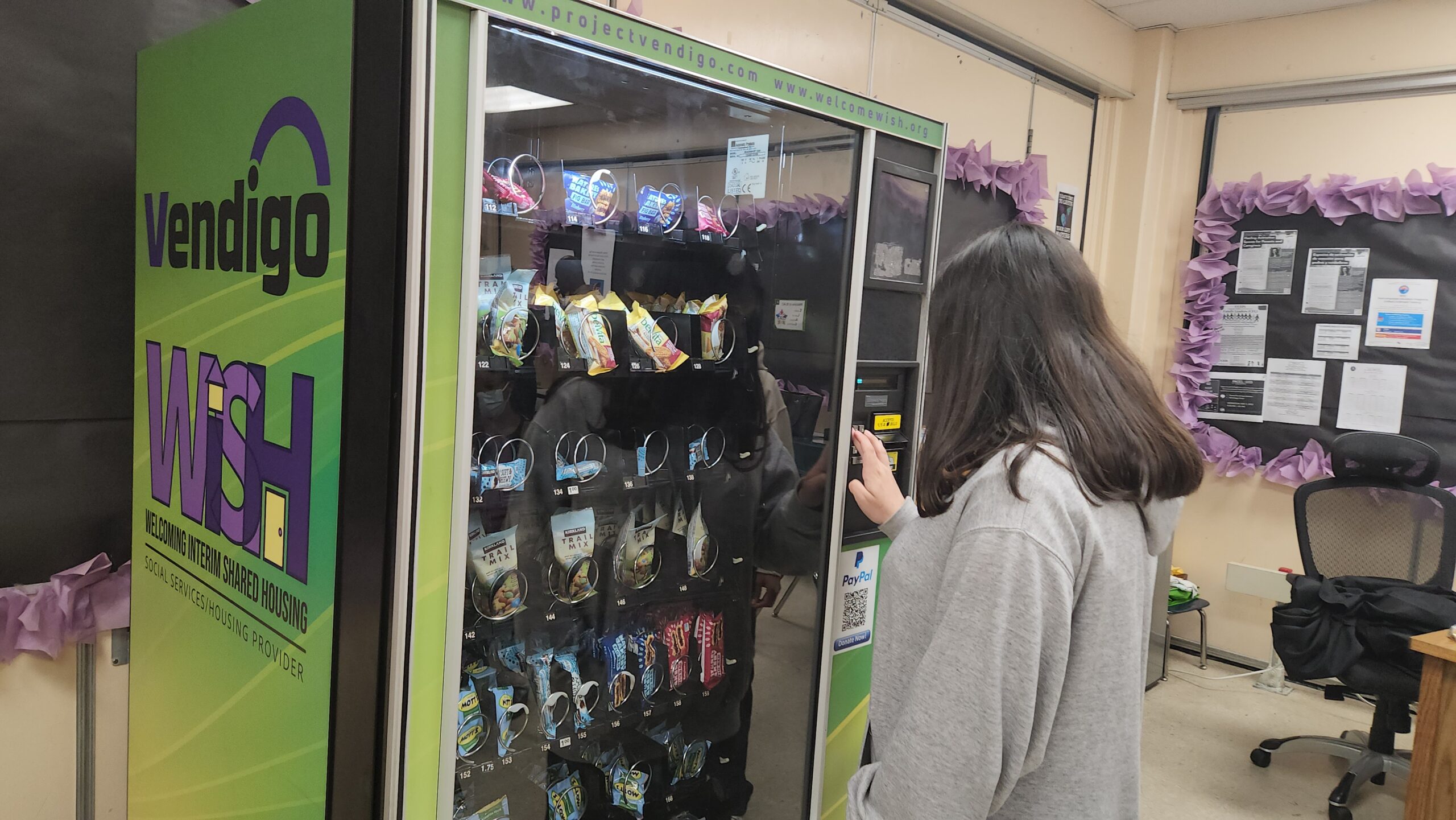
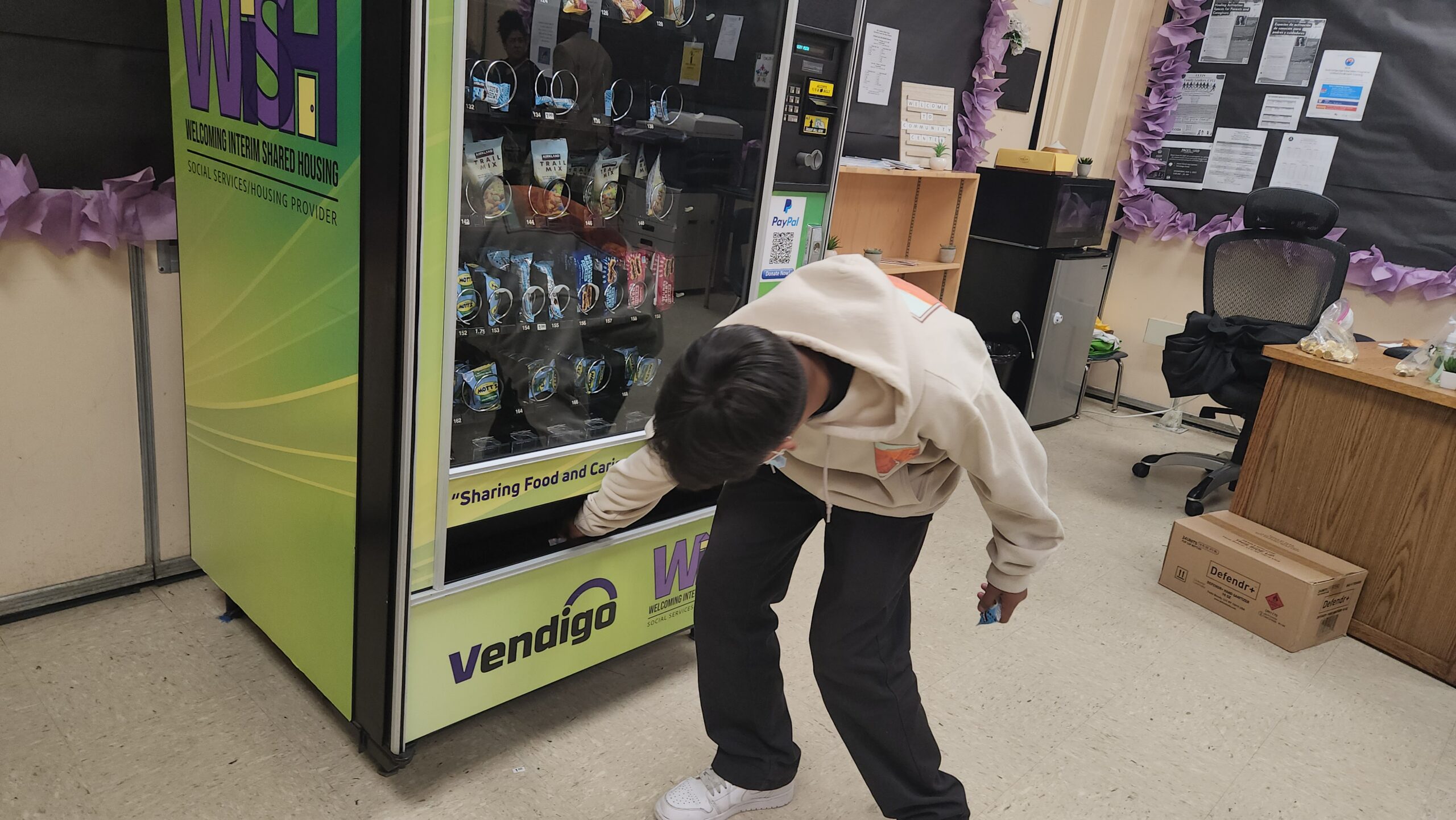
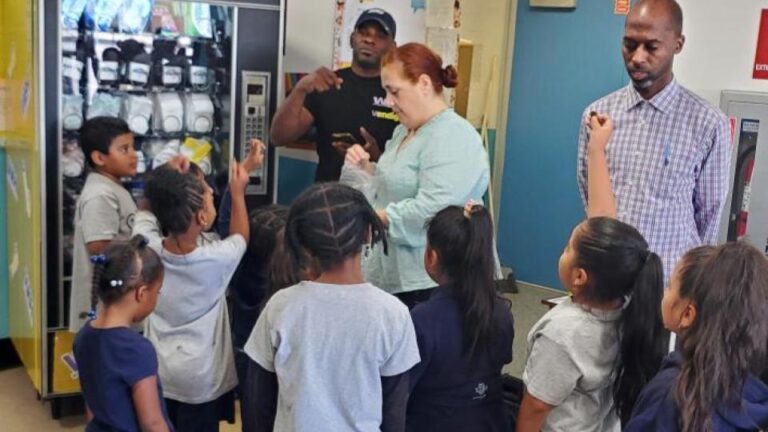
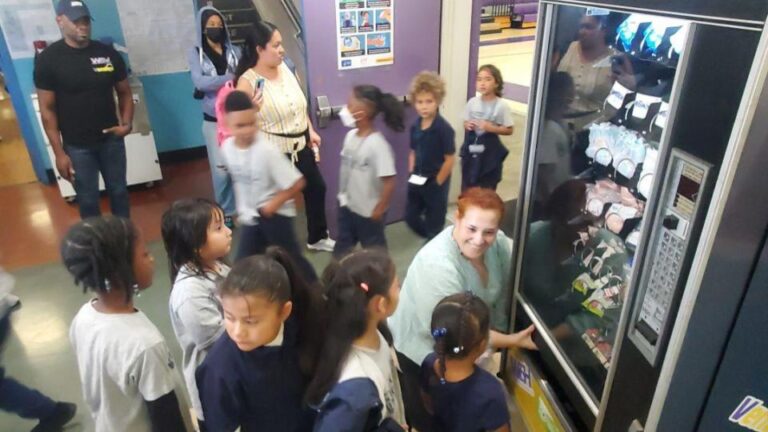
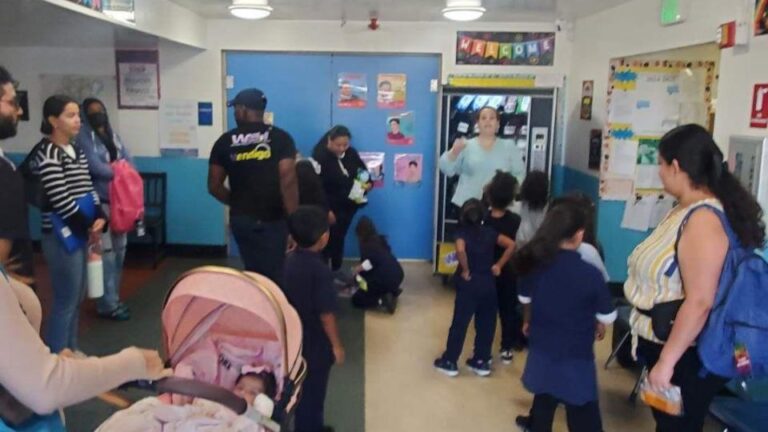

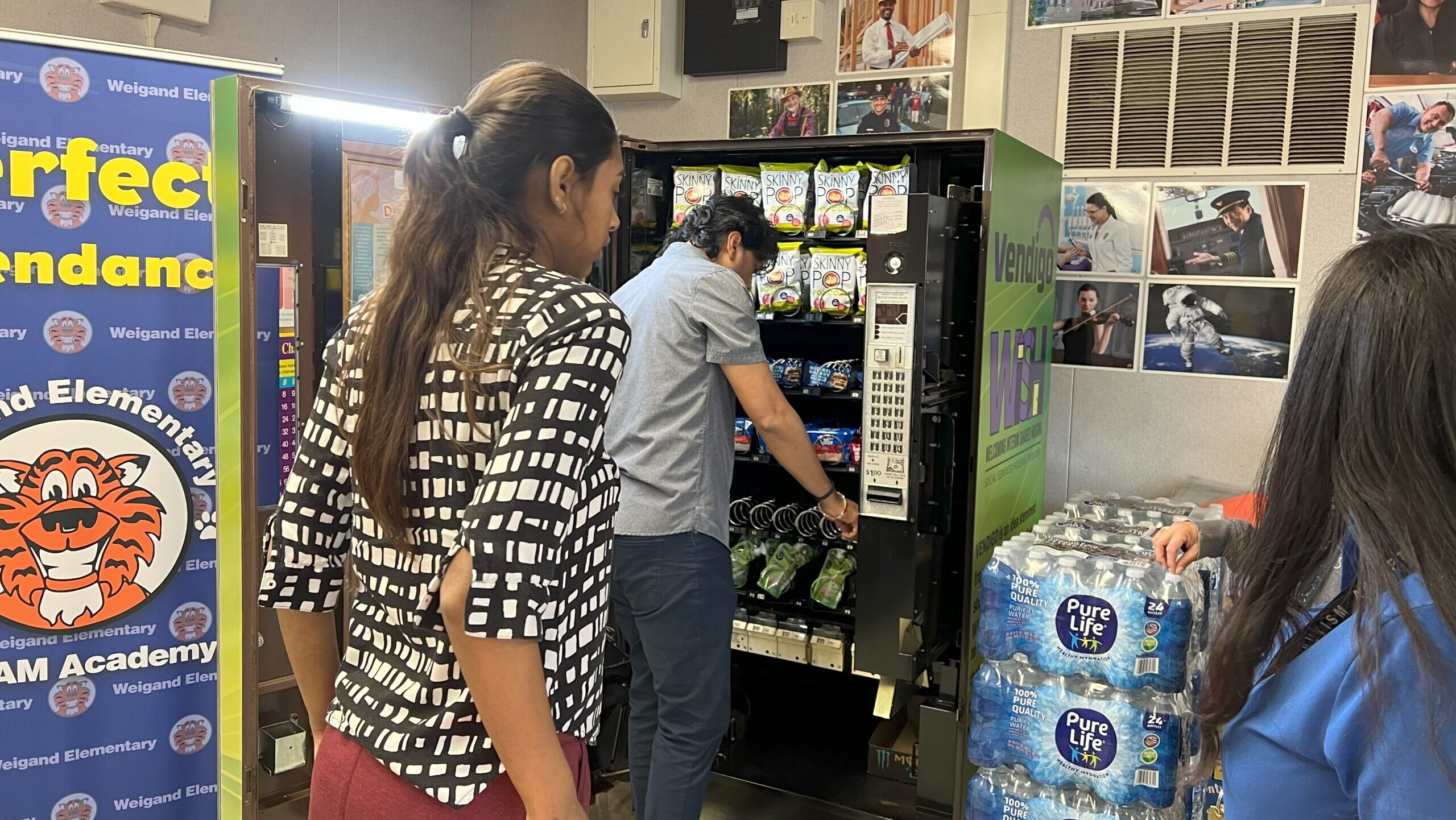
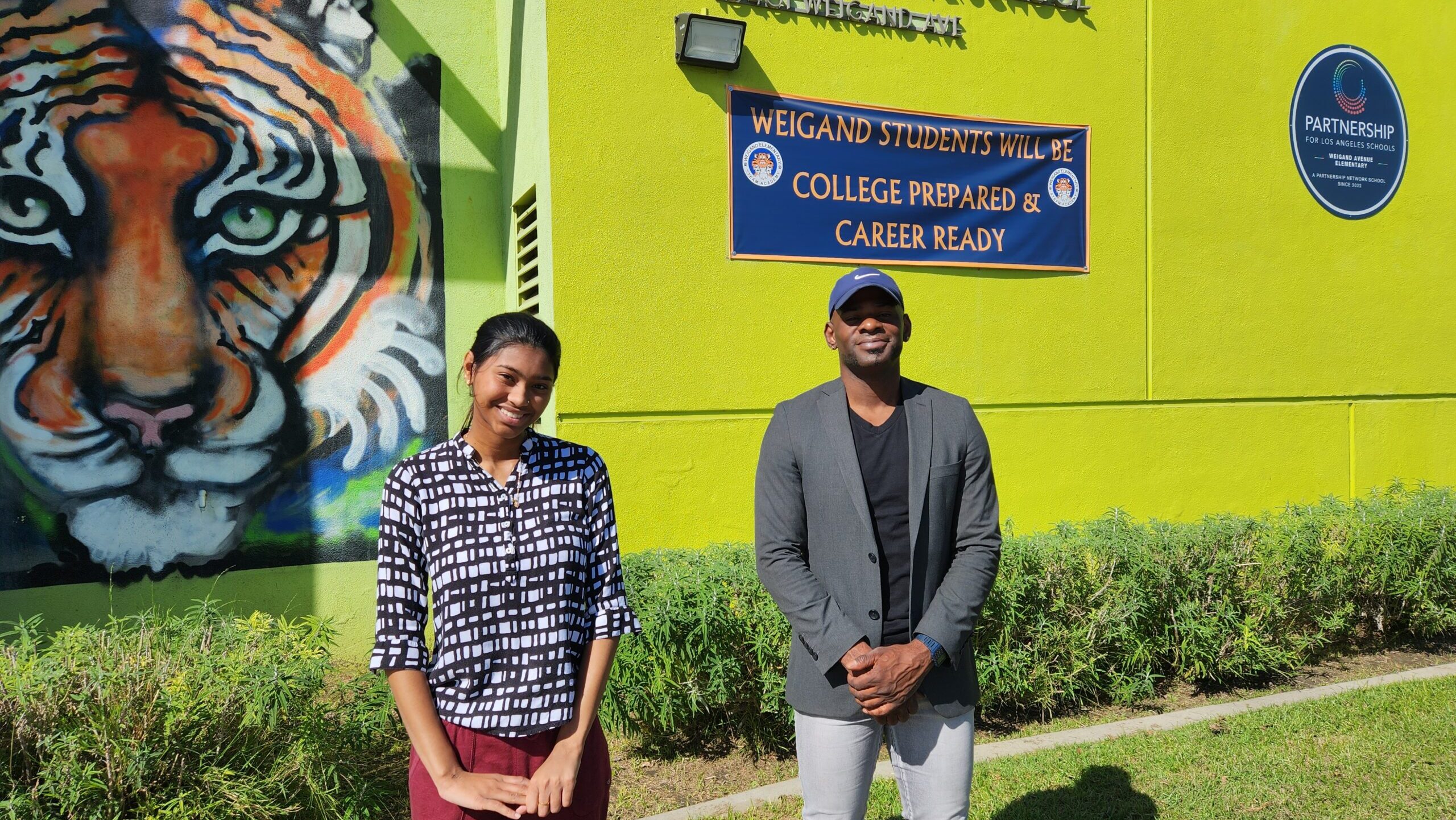


The project aims to provide access to essential goods and services for communities in need in Los Angeles through the installation of innovative vending machines. This initiative is necessary because a significant percentage of the population in LAUSD lives at or below the poverty line, with one of the highest concentrations of low-income students in the state. Additionally, the point-in-time count conducted in February 2021 estimated that over 69,000 people were experiencing homelessness in LA County, with a 4.1% increase from 2020. By offering items such as healthy snacks, hygiene products, and other necessities, these vending machines will help bridge the gap in accessibility and support the well-being of underserved communities.


The project aims to provide access to food for communities that are in need in Los Angeles through the installation of vending machines. This initiative is necessary because a significant percentage of the population in LAUSD lives at or below the poverty line, with one of the highest concentrations of low-income students in the state. Additionally, the point-in-time count conducted in February 2021 estimated that over 69,000 people were experiencing homelessness in LA County, with a 4.1% increase from 2020.

Objectives
- To install vending machines in schools and communities where students and residents can access healthy snacks, drinks, hygiene products, and other essential items.
- To work with non-profit organizations to identify the best locations for installing the vending machines, ensuring they reach the most underserved areas.
- To ensure that the vending machines are easy to use and accessible to those who need them, providing a seamless experience for accessing essential goods and services.
Methodology
Research:
Project Vendigo started as a research initiative to identify if vending machines can be a real solution for people needing 24/7 access to essential goods and services. After gaining some confidence, the research focused on vending machine vendors and the types of vending machines available to be customized for people in need of constant access to essential items.
Non-Profit Collaboration:
Collaboration with non-profit organizations, especially WISH (Welcoming Interim Shared Housing), which work with communities seeking food and shelter, was a game changer. Brainstorming sessions with WISH to expand the idea of Project Vendigo resulted in identifying the right locations where vending machines can be installed for people to access essential goods and services.
Location Selection:
Location selection is key to the success of Project Vendigo. The team closely worked with non-profits and reached out to community leaders to identify the best locations for installing the vending machines. After many rounds of discussions about the selection of goods, accessibility, and method of operation, the very first vending machine was humbly unveiled at Audubon Middle School. Installation in other locations is a work in progress.
Funding:
Sustainability of the project was also well-researched. While donations are the backbone of success, Project Vendigo is also looking to enable the success of this project by installing for-profit vending machines that can sustain the non-profit vending machines installed in communities that need them the most. This way, the for-profit vending machines can cover the costs for the free/non-profit vending machines.
Access Control:
The project will ensure the vending machines are accessed in a controlled way. For now, the installed vending machines leverage tokens distributed to community members in need. The machines are customized with guard rails and access controls to prevent misuse. It is a learning process.
Compliance:
The project will ensure that the items offered in the vending machines strictly comply with relevant policies, such as the LAUSD’s food policy for healthy food options.


Methodology
● Research: The project will begin with research on vending machine vendors who offer second-hand vending machines or vending machines for lower costs. The team will also research the type of vending machines that are available and suitable for low-income communities.
● Non-Profit Collaboration: The team will collaborate with non-profit organizations that work for low-income communities for their food and shelter. The project will brainstorm the idea with non-profit organizations and expand the idea further to see if the vending machines can be installed in other areas where there is a severe need for food.
● Location Selection: The project will work with non-profit organizations and community members to identify the best locations for installing the vending machines. The project will ensure that the locations are easily accessible and secure.
● Funding: The project will install one vending machine for profit in a location that can sustain the other vending machine that is installed for low-income communities. This way, the for-profit vending machine can cover the costs for the free/non-profit vending machine.
● Access Control: The project will ensure that the vending machines can be accessed in a controlled way. The team will work with non-profit organizations to develop a system that will allow low-income students and community members to access the vending machines for free or at a very low cost. The system could involve using fake cards or tokens that the schools and non-profit organizations can distribute to students and community members in need.
● Compliance: The project will ensure that the food offered in the vendingmachines complies with the LAUSD’s food policy.

Expected Outcomes
● Increased/24-7 access to food for low-income and communities in need.
● Improved health outcomes for students and community members.
● Increased community involvement in addressing the issue of food insecurity.
● Increased collaboration between non-profit organizations, schools, and
community members in addressing issues related to food insecurity.
Testimonials




Frequently Asked Questions
Frequently Asked Questions
The below questions are our most frequently asked questions about Project Vendigo. If your question hasn’t been answered below, please get in touch through the contact us page.
The below questions are our most frequently asked questions at The Foodbank Project. If your question hasn’t been answered below, please get in touch through the contact us page.
The purpose of “Project Vendigo” is to provide access to essential goods and services for communities in need through innovative vending machine solutions. Currently, the distribution process for these necessities is manual and limited by time constraints. Vending machines offer automation to streamline and enhance efficiency in providing items such as food, hygiene products, and other essential goods, ensuring consistent accessibility for those who need them.
Anyone in need of essential goods and services, regardless of income or social status. Communities lacking sufficient access to necessities will benefit most from these vending machines. Additionally, the plan includes installing vending machines in schools and community centers where students and residents can access a variety of items including healthy snacks, drinks, hygiene products, and other essential goods.
The project will work with non-profit organizations and community leaders to identify the best locations for installing the vending machines, ensuring they are easily accessible and secure. The project will also develop a system that will allow students and community members to access the vending machines for free or at a very low cost.
The broader idea of the “Project Vendigo” is to build a social enterprise. To expand further, install one vending machine for profit in a location that can sustain the free vending machines. This way, the for-profit vending machine can cover the costs of non-profit vending machine. Vendigo is looking for partners who can donate locations and support the cause. Please and please, write to us at projectvendigo@gmail.com if you can support us. The first 9 months, the pilot project was run as a non-profit initiative where donations sustained the project. This provided an opportunity to build various models related to costs, essential services and their likability, optimizing work flows, robustness of vending machines and more.
The vending machines will be stocked with essentials regularly by the non-profit organization partners responsible for specific locations where the vending machines are installed. Currently W.I.S.H volunteers are helping us stock food in the vending machines at various locations. But the end goal is to optimize these workflows and make it more efficient.
The project team will work with the non-profit organizations and community members to identify secure locations for the vending machines.
The vending machines are accessible to all, but the project team will work with non-profit organizations to develop a system that will empower community members to access the vending machines for free. This system could involve using prepaid cards or “no-value” coins that the schools and non-profit organizations can distribute to students and community members in need.
The project will measure its success by monitoring the usage of the vending machines and the feedback from the communities where the vending machines are installed. The project team will also conduct surveys to assess the impact of the vending machines on food insecurity and health outcomes in the communities where they are installed.
Currently the vending machines are procured from a vendor who would help with guidance and repair of vending machines when there is need. Redundancy of vendors is important and there is active research happening on this topic.
For the pilot phase of (9 – 12 months), the project will be funded through donations. The team will also explore grants/crowdfunding options and as well seek partnerships with local businesses and organizations. The future plans are to build a social enterprise where “Project Vendigo” can sustain on its own without attracting public donations.
Healthy food, baby & mother products primarily while other options are being reviewed actively.
The project will track and analyze data on the number of people served by the vending machines, the types of food and drinks purchased, and the frequency of use. The team will also conduct surveys and interviews with users and community members to gather feedback and assess the project’s impact on food insecurity and health/wellbeing outcomes.
